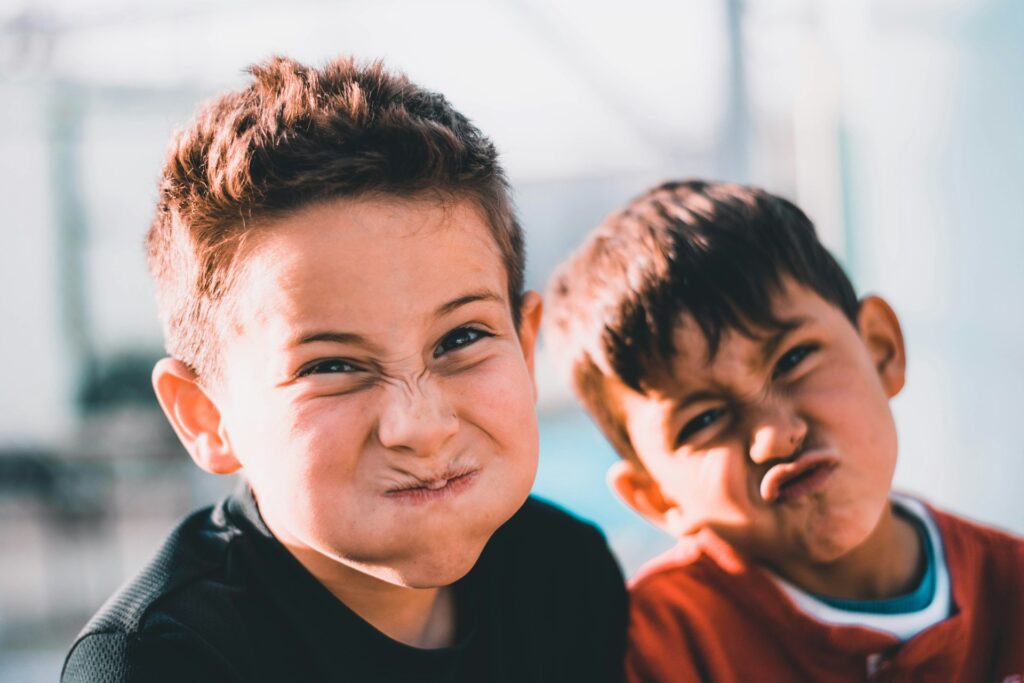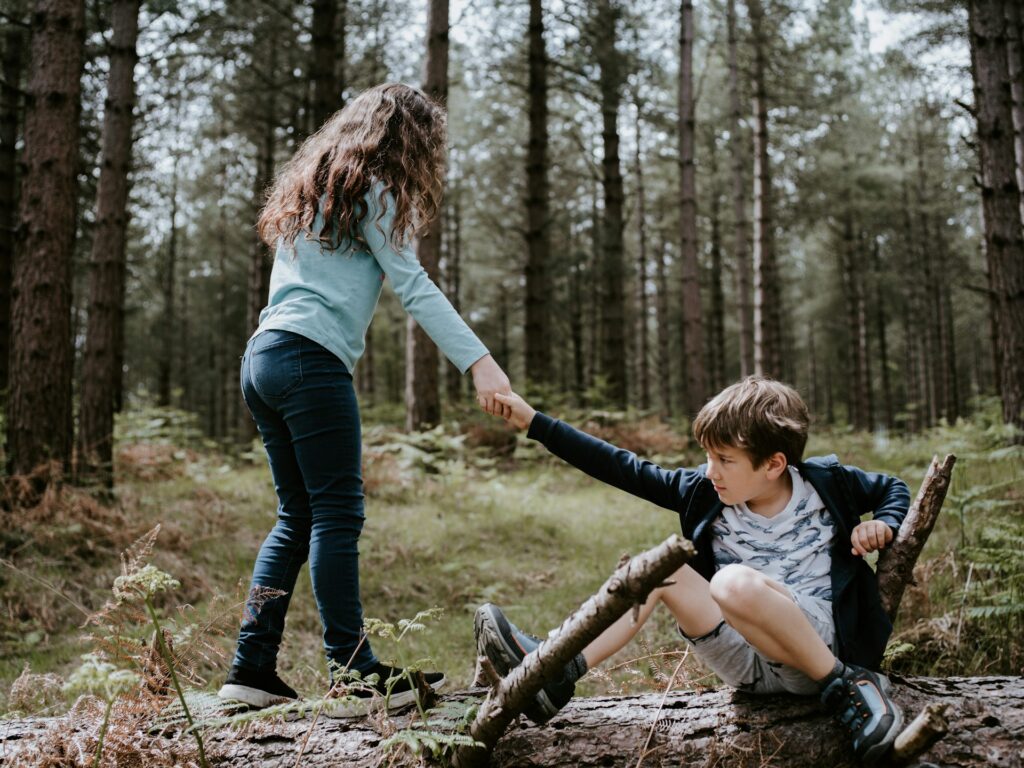Family dynamics often create roles that children never consciously choose but still end up carrying. Two of the most common roles are the scapegoat sibling and the protected sibling. The scapegoat sibling is often blamed, criticized, or punished unfairly, while the protected sibling is shielded from consequences and held up as the “good” child. These roles are not random. They often reflect a parent’s unresolved issues, favoritism, or unhealthy patterns of control. The effects can last well into adulthood, shaping how people see themselves and how they handle relationships. Understanding these roles can help you recognize whether your family placed you in one of them, and more importantly, how those roles continue to affect your life today. Let’s explore the clear signs of being the scapegoat sibling and the equally telling signs of being the protected sibling.
7 Signs You Were the Scapegoat Sibling

You Were Blamed for Problems You Did Not Cause
If you grew up as the scapegoat, it probably felt like trouble found you even when you had nothing to do with it. Families with scapegoat dynamics often need someone to carry the burden of blame, and you became the easy target. If something broke in the house, you were the one accused. If siblings argued, the finger pointed at you before anyone listened to the full story. Over time, this unfair treatment can create a sense of learned helplessness where you stop defending yourself because you expect no one will believe you anyway. This constant blame also leaves deep emotional scars. You may develop anxiety, always expecting to be faulted for things out of your control. As an adult, you might carry guilt into situations where you are not responsible, apologizing too quickly or feeling uneasy even when you did nothing wrong. The roots of that instinct often trace back to being unfairly labeled the family troublemaker.
Your Achievements Were Ignored
Another painful reality of being the scapegoat is that your successes did not seem to matter. Maybe you worked hard for good grades, but your efforts were met with silence while a sibling’s smaller accomplishments were celebrated. Maybe you excelled in sports, art, or music, only to have family members downplay your success or shift the conversation elsewhere. This lack of recognition is not just disappointing in the moment. It teaches you that no matter how hard you work, your family will not give you validation. This message seeps into adulthood, making you more likely to undervalue your own achievements or constantly seek external approval. Scapegoats often grow into high achievers who secretly feel invisible because their family never reinforced their worth.
You Were Compared Negatively to Siblings
Comparison is one of the clearest signs of scapegoating. You may have been constantly measured against the protected sibling, with every weakness highlighted and every strength minimized. If your sibling excelled, they were praised as talented or smart. If you reached the same milestone, it was brushed off or followed by criticism. This unequal comparison shapes self-esteem. Scapegoats often grow up believing they will never be “enough,” no matter what they do. Even in adulthood, this can lead to perfectionism, people-pleasing, or avoidance of challenges out of fear of failure. These patterns come from years of being told, directly or indirectly, that you fell short compared to the sibling who could do no wrong.
You Became the Emotional Punching Bag
Families under stress sometimes offload their frustration onto the scapegoat child. You may have been yelled at for minor mistakes or blamed for things completely unrelated to you. Parents may have taken out their own stress or anger on you because you were the most convenient target. Living as an emotional punching bag makes you hyperaware of other people’s moods. You may have developed the habit of scanning your environment for signs of conflict, ready to defend yourself even when no one has accused you yet. This survival instinct lingers into adulthood, often showing up as anxiety in relationships or workplaces where criticism feels harsher than it is.
You Felt Like the Outsider in Your Own Family
Scapegoat siblings often grow up feeling like they never truly belonged in their own household. You may have been excluded from family outings, left out of important conversations, or treated as though your presence was an inconvenience. When everyone else was together, you may have felt like the odd one out. This exclusion fosters loneliness. It can make you crave belonging so much that you cling to unhealthy friendships or relationships later in life. Adults who were scapegoat children sometimes find themselves repeating the same role in social or work settings, becoming the one blamed or excluded because it feels familiar. The sense of being an outsider does not fade easily when it was a constant part of your upbringing.
Your Opinions Were Dismissed
When you tried to express yourself as a child, you may have been met with eye-rolls, silence, or direct rejection. Your thoughts and feelings carried little weight compared to those of the protected sibling. This repeated dismissal sends a clear message: your voice does not matter. As an adult, scapegoats often struggle to assert themselves. You might find it difficult to speak up in groups, make decisions confidently, or trust that others value your perspective. The root of that hesitation lies in a childhood where every attempt to share your views was minimized or shut down.
You Were Punished More Harshly
Discipline in your family probably felt one-sided. The same mistake that earned your sibling a warning or light scolding might have earned you grounding, lectures, or stricter punishments. The rules seemed harsher when applied to you, and forgiveness seemed slower to come. This imbalance reinforces the scapegoat’s role as the “bad” child, regardless of behavior. It can also create resentment toward both parents and siblings, fueling long-term tension. In adulthood, this often shows up as difficulty trusting authority figures, since you grew up believing that fairness was a privilege you would never receive.
7 Signs You Were the Protected Sibling

Your Mistakes Were Overlooked
Protected siblings often grow up knowing that mistakes will not carry the same weight for them. You may have broken rules, lied, or even caused real harm, only to have parents quickly forgive or excuse your actions. This shield can make childhood easier but leaves you unprepared for the real world where mistakes have consequences. As an adult, protected siblings sometimes struggle with accountability. When faced with criticism at work or in relationships, it may feel shocking or unfair because you are not used to being held responsible. This imbalance in childhood sets up an unrealistic expectation that the world will treat you with the same leniency your family did.
You Received More Praise
Families often poured praise onto the protected sibling, even for minor accomplishments. If you got a passing grade, it was celebrated. If you participated in an activity, your efforts were highlighted. This constant praise creates strong confidence but can also build pressure to always perform well. Over time, you may have grown to associate your identity with being the “good” child. As an adult, this can make failure feel devastating because it conflicts with the image you were always given. While the praise boosts self-esteem, it also ties your worth to success, making it harder to accept mistakes gracefully.
You Were Defended in Conflicts
Whenever disagreements arose between you and your sibling, parents often rushed to your side. Even when you were wrong, the scapegoat sibling was blamed instead. This dynamic not only made you feel supported but also reinforced the scapegoat’s role in the family. As you grew older, you may have expected similar protection in other areas of life. This can make it harder to handle criticism or conflict when others do not automatically take your side. The habit of being defended, while comforting as a child, can leave gaps in conflict-resolution skills as an adult.
You Got Special Privileges
Protected siblings usually experience looser rules and extra benefits. You may have had fewer chores, later curfews, or more financial support. While your scapegoat sibling struggled under stricter expectations, you enjoyed freedom and advantages. This privilege can feel like love, but it also sets up an unequal family structure that leaves scars on both sides. As an adult, you may not recognize the resentment your sibling carries because the privileges felt natural to you. However, looking back often reveals just how unbalanced the treatment really was.
You Felt Like the Center of Attention
Families often revolve around the protected sibling’s activities, goals, and needs. Your milestones may have shaped vacations, family spending, and dinner-table conversations. This spotlight can feel validating, but it also brings pressure to maintain that role. As you grow older, losing that attention can feel unsettling. You may seek similar levels of recognition in relationships or careers, sometimes leading to disappointment when the world does not provide the same constant focus.
Your Opinions Carried Weight
In family discussions, your thoughts and ideas often influenced decisions more than anyone else’s. Whether it was about dinner plans or bigger choices like vacations, your voice held authority. This gave you confidence but also made your sibling’s voice seem irrelevant. As an adult, you may expect the same level of influence in group settings, which can cause frustration when others do not agree. The childhood experience of being taken seriously all the time can create unrealistic expectations for how people will respond to you later in life.
You Were Seen as the “Good” Child
Protected siblings are often given the role of being the reliable, successful one. Parents may have used you as an example of how a child should behave. While this role comes with benefits, it can also become a cage. You may feel pressured to never fail or to hide struggles to maintain your reputation. As an adult, this can manifest as perfectionism or fear of vulnerability. The “good child” image becomes part of your identity, making it hard to admit mistakes or ask for help.
Understanding the Impact
Both roles, scapegoat and protected, come with heavy consequences. Scapegoats may grow up feeling unworthy, invisible, or overly burdened with guilt. Protected siblings may feel pressure to perform, struggle with accountability, or find it hard to accept criticism. Neither role is truly healthy, and both are products of family dysfunction rather than individual flaws. The good news is that awareness is the first step toward breaking these patterns. Recognizing whether you were scapegoated or protected allows you to reflect on how those childhood roles shaped your beliefs. Therapy, self-reflection, and honest conversations with family can help you heal and build healthier relationships. No one has to stay trapped in the role their family assigned.
Read More: If You Were The Family Black Sheep Growing Up, You Probably Do These 10 Things Now
Disclaimer: This article was created with AI assistance and edited by a human for accuracy and clarity.

